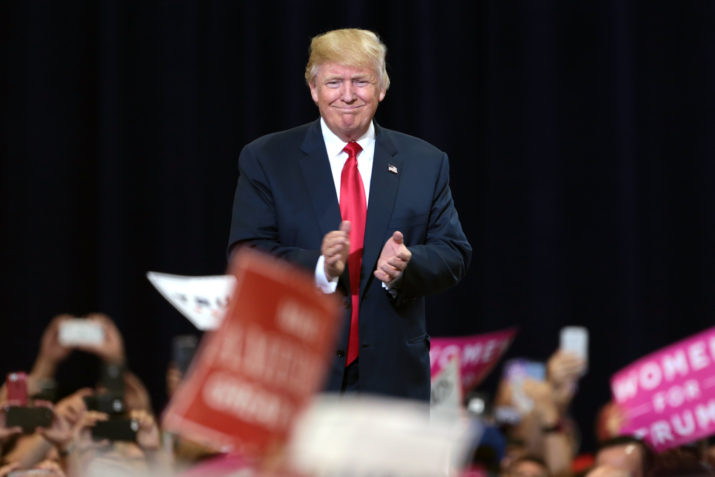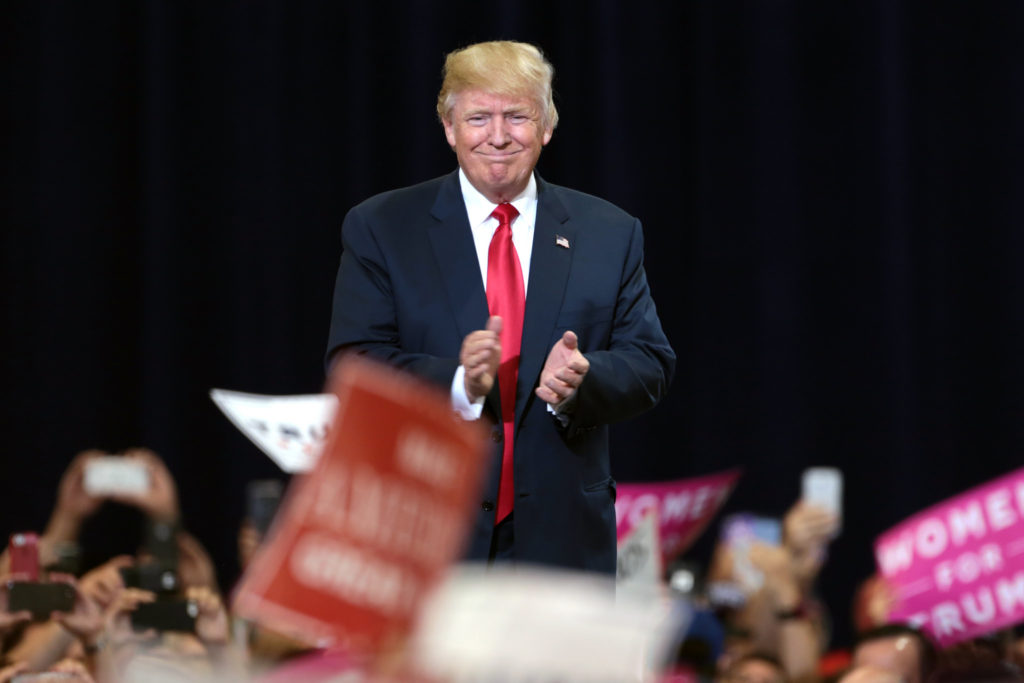

Never before has the change of administration in the United States caused this much concern globally, and never before has a US President incited so much tension ahead of taking office. As the hopes for a Damascene conversion for the new POTUS are waning, one thing has become evident by now: the path of naive unilateralism that the forthcoming American government is set to follow will prove to be of little help for international development or a burgeoning global policy of common good. Trump’s pronouncements, as well as the choice of his cabinet members and closest advisors, raise fears that the future US government will be vehemently opposed to multilateral co-operation. The shock waves of the reactionary political tsunami in America are already being felt in all fields of international co-operation, with the effect set to endure; for example, in the form of body blows to free trade agreements and climate negotiations, the risk of a trade war and even a military stand-off with China as well as the open questioning of the NATO partnership. It is also Trump’s utterly disrespectful attitude towards women and minorities, his reductionist-mercantilist worldview, his laissez-faire mentality towards autocrats, his proven disinterest in poverty reduction and global development, as well as his populist style of manipulation, polarization, and disparagement that give cause for concern. Trump’s “politics of rage,” his ruthless power gamble with the protest capital generated by the growing social inequality in the US, and his recklessness in the pursuit of corporate interest (transpiring from his emerging line on economic and fiscal policy) will serve to further expand the gulf between the disadvantaged and the chronically over-rewarded, not just in America, but also increasingly throughout the world.
Global regime change?
For Europe, this also means that it will occupy an increasingly lonely position in the struggle for fair and global development, democracy, and human rights, as well as in climate protection and sustainable economic policy. While there is speculation that the approach of the new US administration to the Trans-Pacific Partnership (TPP) could possibly represent an opportunity for Europe and China to work more closely as partners, Japanese and Koreans fear the effects of protectionism, isolation, and the deterioration of relations on the political order and security in the region as well as, ultimately, on growth and prosperity. The new Trump doctrine of “America first,” will have its repercussions all over the world, and, for all we know, cause an anti-liberal backslide. Conflicts are bound to erupt over resources, markets, influence spheres, and power. In Europe, the weakening of the North Atlantic alliance is a nightmare scenario. Between the resurgent confidence of Putin, Trump’s malign mentor, the growing volatility of Turkey, a strategically-central NATO member, and the ongoing threat of terror due to the conflicts in the EU-neighbourhood, Europe finds itself in a tight spot. There are increasing indications that the reaction to this precarious situation will result in increasing emphasis on security and defence policy compared to other aspects of foreign relations. It is argued that citizens expect a toughening of migration policy and border management in order to protect their own freedom and prosperity. In a year of important elections and policy decisions in several European states, politicians will be clamouring for more security, while issues of sustainable development will probably find less strident advocates. In this respect, EU external policies display a lack of vision and long-term perspectives. Geography may be destiny, but what we make of it is our choice. The European neighborhood puts EU foreign policy test. However, the EU has reacted to the crisis in its surrounding areas by retracting and lowering its level of ambitions. By creating a vacuum in its neighbourhood, Europe leaves the floor to other regional powers, and runs the risk to aggravate the situation in the medium term.
Europe between a rock and a hard place
Under these conditions of extreme uncertainty, the EU is also faced with the departure of a key member state. And across the channel, the Brexit speech delivered by Theresa May on January 17th provided an indication of how hard a course the United Kingdom intends to pursue. Even before taking office, Trump has applauded Brexit as “a great thing,” and announced his intention to conclude a bilateral trade agreement with Britain as quickly as possible. The British foreign minister Boris Johnson flew in especially for discussions on the matter. However, official negotiations of such a treaty would represent a clear infringement of EU law, by which the UK remains bound until its formal departure from the union. With a shift towards economic nationalism in the UK and the US, including the introduction of extra tariffs and a vague threat to turn Britain into a tax haven to attract businesses, the signs point to an end of the liberal economic order, a trend that further industrialized countries could emulate. This presents the multilateral efforts in the field of global sustainable development of the EU – and thereby also Germany – with enormous challenges. The reform of the “European consensus for development” that is planned for 2017 must provide a strong indication for new paths of global co-operation and bundle the progressive forces in Europe. The aim must be to find ways of keeping the UK engaged in European foreign and development policy, as May hinted at in her speech. In the negotiation of the EU’s next multi-annual financial framework efforts should be made to allow for British participation in the common development policy instruments. The alternative would be a particularly painful loss – for Europe and the world. Faced with the centrifugal forces and EU scepticism, Europe needs, more than ever, common answers to the economic and social problems that threaten the cohesion of the Union. This is an uphill battle in the midst of a wave of nationalism, populism, and disruption, and it is questionable whether Europe’s political leaders are prepared for it. At present, all hopes reside in Germany, which under its G20 Presidency could contribute to build new alliances for multilateral co-operation. The EU needs to develop new approaches to its partnerships in order to advance a progressive global agenda. In the medium term, if Europe wants to avoid further decline and an even greater loss of credibility and attraction, it will have to assume more responsibility for tackling global challenges – and also pay a larger share of the costs of these policies.
Dr. Thomas Henökl is Senior Researcher at the German Development Institute in Bonn, and Associate Professor of Public Policy at the University of Agder (Norway). He works in research and teaching in the fields of European politics, public administration, EU foreign and security policy, international cooperation and development, and more widely on comparative politics and organization theory. Previously, Thomas Henökl worked for the European Commission, DG Relex (from 2011 the European External Action Service), and at the European Institute of Public Administration (EIPA). Thomas has a PhD in Political Science from the University of Agder (Norway), as well as three Masters’ degrees in Political Science, European Public Policy, and Public Administration from the University of Innsbruck (Austria), the Institut d’Etudes Politiques (Sciences-po), Paris, and the Graduate School of Public Administration at the International Christian University, Tokyo.
Photo: Donald Trump, Gage Skidmore | Flickr
Published on January 20, 2017.




